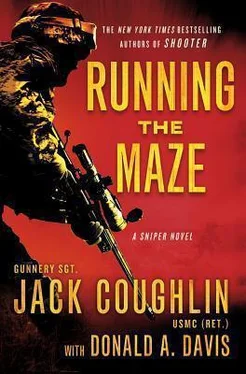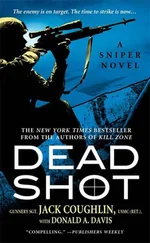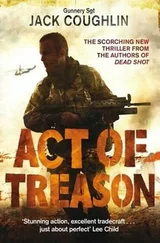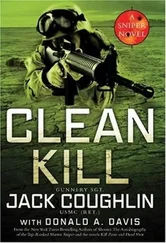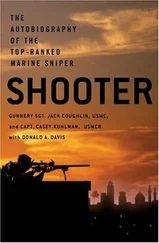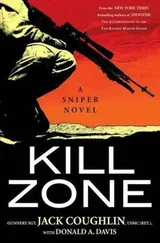Turner gave a nod and reluctantly stepped onto the dirt, looking like a cop, not an old friend. Mrs. Ledford was not someone with whom he could postpone getting to the point. Best to get it done professionally but kindly. Turner had great respect for her. Her husband, Stephen, had died of a heart attack three years ago, their son, Joey, had left long before that to become a doctor, and their daughter, Beth, was overseas somewhere with the Coast Guard. Margaret refused to move and had continued to run the big farm with hired help, losing her grief in the grind of pulling a living out of the rich Iowa dirt. Against the odds, and with a pair of full-time hands, she successfully ran about four hundred acres of corn, wheat, and soybeans, and at least a hundred and fifty head of cattle and a dozen horses. The fog of working from dawn to dark every day had slowly eased the burden of her husband’s passing; she would never forget him but had accepted things as they were. The kids came back to visit now and then, and that’s just the way life was. Her hair was going gray, but Deputy Turner knew that Maggie Ledford was one tough lady, and that she would need that strength now.
“Hey, Bill,” she called, walking over to him. “You wearing sunscreen today?”
“Yeah, Maggie.” He did not engage her in the banter, and his face was serious. “Can I get a glass of water?”
“You tell me what you’re doing here. Then you can have water, milk, or a beer of your choice.” She put the hat back on but stripped off the heavy gloves and crossed her arms, looking up at the tall deputy.
He hooked his thumbs in his belt and bit his lip, then sighed. “No way to make this easy, Maggie, so I’ll just say it: Joey’s dead. He was killed with his entire medical team by the Taliban over there in Pakistan.” The deputy looked straight up, unwilling to make eye contact, and when he glanced back down, he saw that the color had drained from Maggie Ledford’s face and she was collapsing. He caught her. “God damn them,” Bill Turner whispered to himself, taking the weight of the woman before she fell. “Damn ’em all straight to hell.”
Inside the cool house, once Mrs. Ledford recovered from the initial shock, she asked Deputy Turner if her daughter had been notified. He didn’t know. Maggie went to her little desk in the kitchen, pulled open a drawer, and found a special telephone number that she was to call in case of a personal emergency; the American Red Cross would contact Beth, who was on classified duty somewhere overseas.
* * *
“PREPARE TO TAKE THE shot, Gunner.”
“Aye, aye, sir. Think you can hold this flying machine steady for a moment? You’re bouncing around so much I might not be able to even hit the dang ocean.” The voice in his headset was totally calm.
“I have my own problems, Gunner,” Lieutenant Commander Arvis Taylor replied. “You thinking maybe you can pilot this extremely complex MH-68H helicopter better than me?”
“You think you can shoot better than me?”
“No, Gunner. I do not. So stand by to slam a round into that boat, if you please. He didn’t get the message from your warning shots. I’m steadying up now. If you see anybody with an RPG, take ’em down without waiting for my order.” Taylor studied his instruments closely as he worked to bring the bright white Coast Guard helo with the bold orange stripe to a midair standstill.
“Ab-so-lute-ly, sir.” At the open side door behind Taylor, the sniper also was running through mental geometry to sight in on the engine compartment of the speedboat below—relative speed, angle of attack, bullet drop over distance, the effect of the powerful downdraft on the shot. Adjustments were made. These pirates had met their match but didn’t understand that yet. The sniper had ripped a few warning bursts from the M-240 machine gun around their boat with no effect. Now that weapon was pushed aside, and a thirty-seven-pound M-82 Barrett .50 caliber rifle was in position instead, dummy-corded with a D-ring to the harness. The powerful scope brought the engine compartment at the rear of the target boat into a tight, clear view.
The Coast Guard helo was flying the unfriendly skies of coastal Somalia as part of the international naval effort to interdict the prowling seaborne pirates who preyed on merchant shipping. The target vessel, long and wide and slow, had attacked a freighter, but it swerved away when the helo, which had been returning from another mission, heard the distress call from just forty miles away and heeled into a smooth turn. It was overhead in minutes. Luck is always an advantage in combat.
The sniper saw that the boat was hauling the combined weight of ten men, who stared up at the helicopter. One had an AK-47 at his shoulder, pinging away ineffectively, far out of range. “I’m ready, Skipper.”
The pilot and the sniper had worked together for a long time as members of the U.S. Coast Guard’s Helicopter Interdiction Tactical Squadron (HITRON) and were experienced in taking down much tougher targets, such as the go-fast boats of drug smugglers in the Gulf of Mexico. Lieutenant Commander Taylor had seen the sniper shoot those quick, dancing speedboats with such precision that often only one shot was needed, because the bullet would penetrate the engine and blow it apart. Without power, the go-fasts became wallowing hulks that would stay where they were until a ship arrived to arrest the crew and seize the cargo of marijuana or cocaine. Taylor was confident that his sniper was as good as they come.
He settled the helicopter into position, and the dials were right where they should be. The big problem in flying over water was not to be fooled by a smooth, mirrorlike surface and fly right into it. “Commence firing,” he said.
The sniper shot on the command, and the web of straps bracing the Barrett took the recoil. There were two big Mercury outboards on the rear of the pirate boat, and the one on the left exploded in a shower of metal shards that wounded several pirates. With practiced ease, another bullet was chambered and fired, and the second motor was torn from the stern. The impact of the powerful shots sent the long boat into a lazy, powerless turn.
“You finished yet, Gunner?” asked Taylor.
“Yes, sir,” replied the sniper, pulling the Barrett back into the helo and securing it. As Taylor radioed the results to a French navy frigate that was heading to the scene, the sniper pushed the goggles up, took off the helmet and ran both hands through her blond hair, then pulled on a blue baseball cap with gold lettering. Beth Ledford took a drink of water and waved to the drifting Somali pirates, who began to shout and shake their fists in futile anger when they realized that they had been attacked, and thoroughly beaten, by a woman.
Once the French warship was in sight and heading for the disabled vessel, the helicopter spun out of its holding pattern and was soon making its final approach to the landing area on the broad stern of the National Security Cutter Stratton, a 418-foot-long white vessel that looked friendly to allied maritime units but overwhelmingly threatening to potential enemies. Petty Officer Ledford was looking forward to a quick debriefing, cleaning her weapons, then some hot chow and a shower, clean sheets, and sleep.
“Oh-oh.” Taylor’s voice cut into her daydreaming. “Hey, Ledford. You still awake back there?”
“Yep. Sir.”
“Look at that welcoming committee just beyond the platform. You got better eyes. Who is it?”
Beth shaded her face from the sun with the palm of her hand. Three officers in pressed khaki uniforms and blue hats were in line, watching the helo come in. “It’s the skipper… chief of the boat… and the third one is the chaplain. They aren’t smiling.”
Читать дальше
